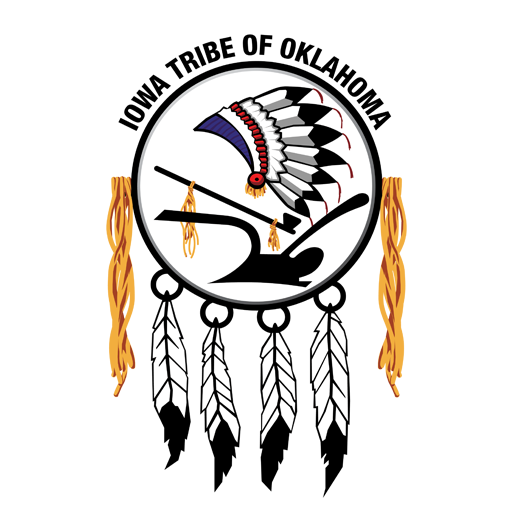
Victim Services
Page Contents
ToggleTribal Victim Services Set Aside Program
The Tribal Victim Service Set Aside Program works with victims of crime to help assure that their rights as crime victims are realized. The program serves all victims in our community, regardless of ethnicity. The focus in the coming year is serving those victimized by drunk and drugged drivers, elder abuse, and human trafficking. Program staff serves as a single point of contact and accountability as they work to coordinate federal, state, local, and tribal programs, and services to meet the needs of victims and usher them through the criminal justice system.
The goals of the Tribal Victim Service Set Aside Program are:
- Provide professional, victim-centered, and culturally competent services to victims of crime, elder abuse, and human trafficking.
- Work with crime victims and other professionals to decrease the rate of re-victimization.
- Increase awareness of program services and the impact of crime through training, community events, and media outlets.
- Improve program performance through staff development and timely reporting.
This project is supported by Grant number 2018-VO-GX-0152 awarded by the Office of Victims of Crime, Office of Justice Programs, U.S. Department of Justice. Points of view expressed in this document are those of the author and do not necessarily represent the official position of the U.S. Department of Justice.
Sexual Assault Services Program
The Sexual Assault Services Program serves the needs of child, adolescent, adult, and secondary victims of sexual assault. The program serves all victims in the community, regardless of ethnicity. Referrals can be made to the program by law enforcement, social service agencies, family members, or individual victims.
The goals of the Sexual Assault Services Program are:
- Develop and maintain culturally specific direct intervention and support assistance to victims and secondary victims of sexual assault.
- Establish outreach to increase sexual assault victim and collateral victims’ utilization of services.
- Provide culturally specific advocacy, case management, referrals, counseling, and support group services to sexual assault victims and secondary victims.
- Maintain and continually prepare staff to be effective, compassionate, culturally competent, and victim centered.
This project was supported by Grant No. 2015-KT-AX-0008 awarded by the Office on Violence Against Women, U.S. Department of Justice. The opinions, findings, conclusions, and recommendations expressed in this publication are those of the author and do not necessarily reflect the views of the Department of Justice, Office of Violence Against Women.
Tribal Governments Program
The Tribal Governments Program serves adult and adolescent victims of domestic violence, dating violence, stalking, or sexual assault. The program serves all victims in the community, regardless of ethnicity. Referrals can be made to the program by law enforcement, social service agencies, family members, or individual victims.
The goals of the Tribal Governments Program are:
- Provide professional, victim centered, and culturally competent advocacy services to adult and adolescent victims of domestic violence, dating violence, stalking, or sexual assault.
- Provide transitional housing and support for victims of domestic violence, dating violence, stalking, or sexual assault.
- Work with the community to create culturally appropriate education and prevention campaigns around the issues of domestic violence, dating violence, stalking, or sexual assault.
- Review and revise Tribal Codes as needed to increase prosecution of those committing crimes of sexual assault, stalking, dating, and domestic violence.
- Form a functioning Sexual Assault Response Team (SART) to implement protocols and procedures to increase prosecution of perpetrators committing sexual assault against Native American women and children.
This project was supported by Grant No 2020-TW-AX-0013 awarded by the Office on Violence Against Women, U.S. Department of Justice. The opinions, findings, conclusions, and recommendations expressed in this publication are those of the author and do not necessarily reflect the views of the Department of Justice, Office of Violence Against Women.
Victims of Crime Act
In general, any individual who is a victim of a crime including, but not limited to, domestic violence, dating violence, sexual assault, stalking, child abuse, identity theft, elder abuse/neglect, homicide, are eligible for services from the Iowa Tribe of Oklahoma’s VOCA Program. Individuals who request services will be screened to determine whether the individual is eligible to receive services from the program. Must be an adult, 18 years of age or older. If applicant is not an adult the minor must be represented by an adult in the Guardian or Parental capacity.
Applicants must reside in or must be moving to the Iowa Tribe of Oklahoma’s jurisdictional boundaries to be eligible for services from the Iowa Tribe of Oklahoma. These counties include Lincoln County, Logan County, and Payne County.
Goals of the VOCA Program are as follows:
- Assist victims in understanding and participating in the criminal justice and civil court system; and provide measures of safety and security to victims of crime.
- Enhance victim services in Lincoln, Logan, and Payne counties by offering culturally competent and holistic legal services to at least 15 victims of crime and by building relationships with local law enforcement agencies within Lincoln, Logan, and Payne counties.
- Provide advocacy and referrals to at least 15 victims of crime to promote self-sufficiency and increase awareness of and participation in the Victims Compensation Program.
- Improve effective services provided in Lincoln, Logan, and Payne counties by tracking the number of victims served and the types of crimes committed against them, and by completing tribal and federal reporting requirements.
- Maintain current partnerships and increase partnerships with more agencies to better serve victims of crime.
This project was supported by Grant No 2020-VOCA-ITO-026 awarded by the Office on Violence Against Women, U.S. Department of Justice. The opinions, findings, conclusions, and recommendations expressed in this publication are those of the author and do not necessarily reflect the views of the Department of Justice, Office of Violence Against Women.
Contact Information
Office: (405) 547-4234
24/7 Hopeline: (405) 880-1749
victimservices@iowanation.org
(Serving Payne, Logan, and Lincoln Counties.)
Physical Address
335588 E. 750 Road
Perkins, OK 74059
Phone: 405-547-2402
888-336-IOWA(4692)
Directions
From I-35
Go East on Hwy 105 for 22 miles
Go North on Hwy 177 for 4 miles
Turn left on Complex Road (at Iowa Tribal Complex Sign)
